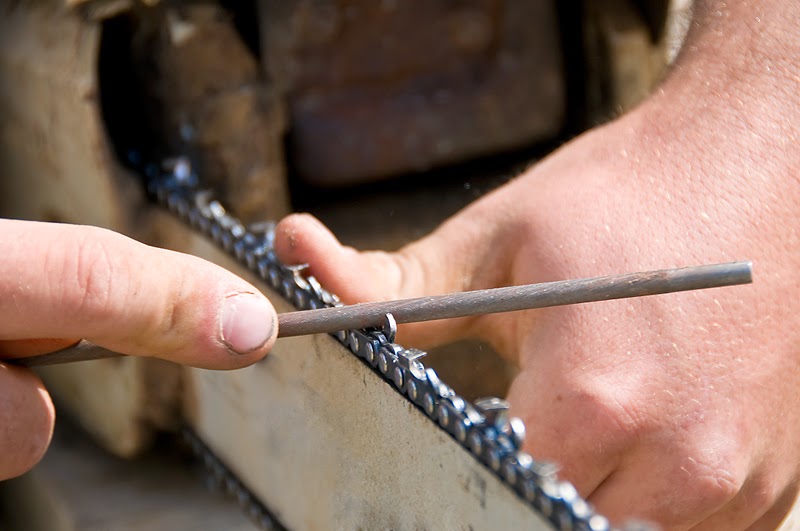 Electric chainsaws are quieter, lighter-weight than gas models, and easy to start. All they need to run is an extension cord and an outlet.
Electric chainsaws are quieter, lighter-weight than gas models, and easy to start. All they need to run is an extension cord and an outlet.But what about maintenance? After all, one of the advantages of an electric chain saw is not having to do oil changes and refill the gas, right?
Electric chainsaws are definitely cleaner and easier to maintain than gas models, but they do still require some maintenance. To keep your chainsaw running smoothly for years to come, here are few tips to consider following.
Chain Oil
While you don't have to change out motor oil, your chain isn't very fond of dry friction against the bar. It's very important to stay on top of keeping your chain lubricated with oil to prevent it from wearing out. Oiling the chain will also aid in providing a smoother cut. Any clean motor oil should do, but if you're using your saw in cold winter weather, be sure to use an oil with a lower viscosity.
Chainsaw Bar
Wear and tear can present issues with a bar. Be sure to clean out any dust or debris in the bar's groove. You can use a wire, pipe cleaner, etc. to do this. Inspect the bar for any burred edges, and file any down outside the groove. If your bar is cracked, bent, or excessively worn, change it out with a new bar.
Extension Cord
If you're operating an electric chainsaw, you will inevitably have to maintain a safe and functional extension cord. Make sure you use an extension cord that's approved for outdoor use. They're usually marked with a W or W-A suffix. Using an indoor, improperly sized extension cord can cause your saw's motor to overheat and suffer damage. If your cord ever becomes frayed or worn to the point where it's exposing any wiring, dispose of it and get a new one.
Long-Term Storage
Before putting away your chain saw for the winter, it's a good idea to winterize it for storage. Drain chain oil and remove the chain and bar. Soak and clean the bar and chain, dry them, then apply a thin layer of oil to help preserve them and prevent rusting. If your chain is too worn down to be sharpened, dispose of it and replace it for the next season. If the chain is damaged or broken, don't attempt to repair it - buy a new one.

No comments:
Post a Comment